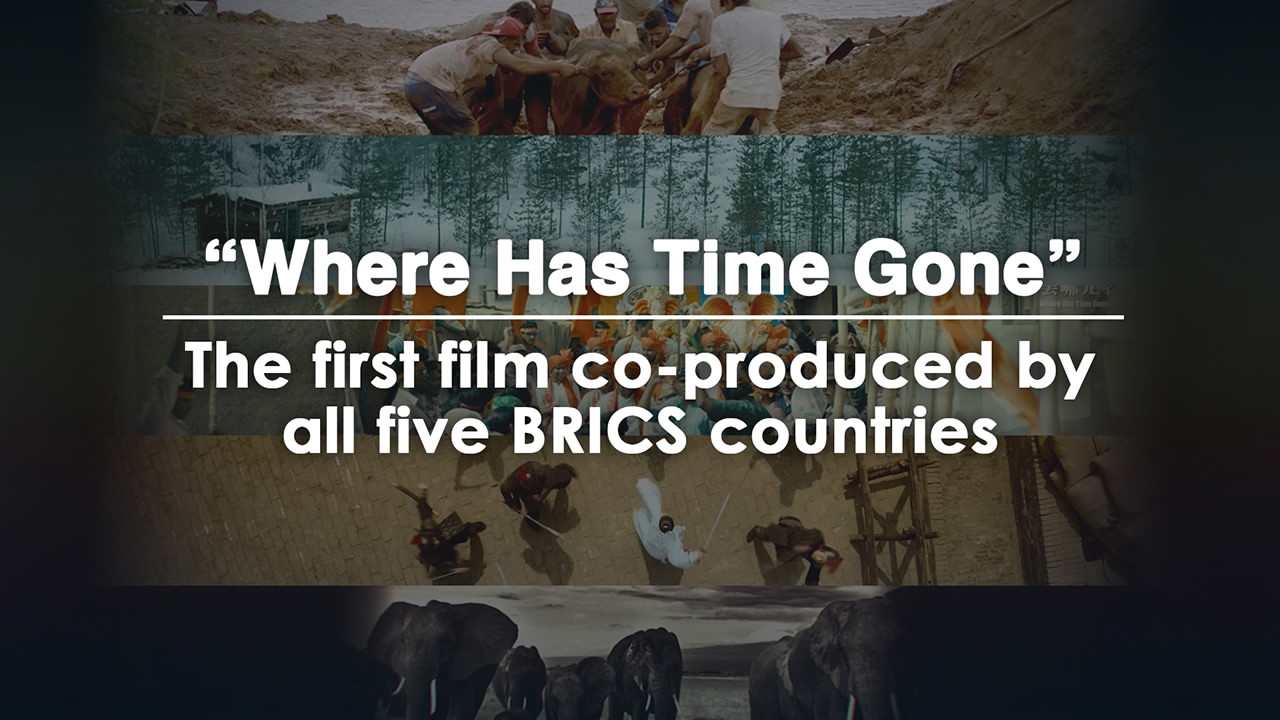The BRICS countries - Brazil, Russia, India, China, and South Africa - are usually known as an important driving force in the world economy, accounting for 23 percent of global gross domestic product in 2016.
Alongside trade however, they have also held increasing cultural exchanges and established multiple mechanisms to boost multilateral collaboration in fields like education, sports and film.
Education
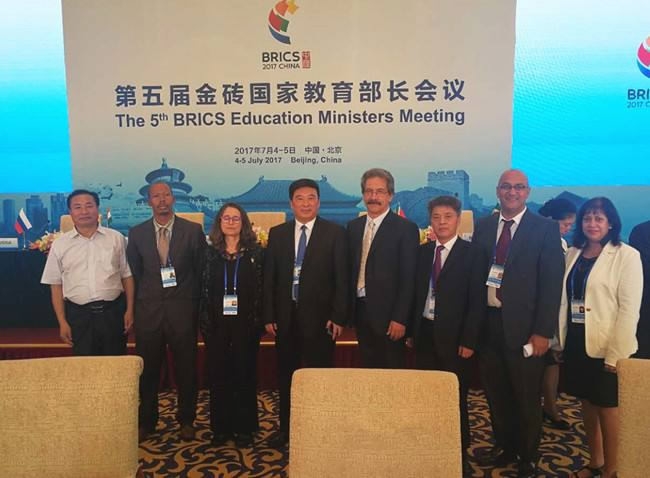
The 5th BRICS Education Ministers Meeting was held in Beijing from July 4 to 5, 2017. /Internet Photo
The 5th BRICS Education Ministers Meeting was held in Beijing from July 4 to 5, 2017. /Internet Photo
The annual meeting of BRICS education ministers, initiated in 2013, is one such mechanism aimed at strengthening cooperation in education, research and innovation.
In 2015, a BRICS Universities League, a cross-border network of about 40 higher education institutions, was set up offering student exchanges, dual-degree programs at master's and PhD level, and joint academic projects.

Chinese university students attended the first BRICS Youth Summit held from July 3 to 7, 2015 in Kazan, Russia to promote cultural exchanges among BRICS member nations. /Photo from the official website of Lanzhou University in northwestern China’s Gansu Province.
Chinese university students attended the first BRICS Youth Summit held from July 3 to 7, 2015 in Kazan, Russia to promote cultural exchanges among BRICS member nations. /Photo from the official website of Lanzhou University in northwestern China’s Gansu Province.
This scheme has seen increasing popularity, with more than 40,000 students from BRICS countries studying in China last year, accounting for almost 10 percent of all overseas students in the country. Conversely, some 13,000 Chinese students studied in the four other BRICS nations in 2016, according to China's Minister of Education Chen Baosheng.
Sports
Joint efforts have also been made by BRICS countries to promote cooperation in the sports industry.
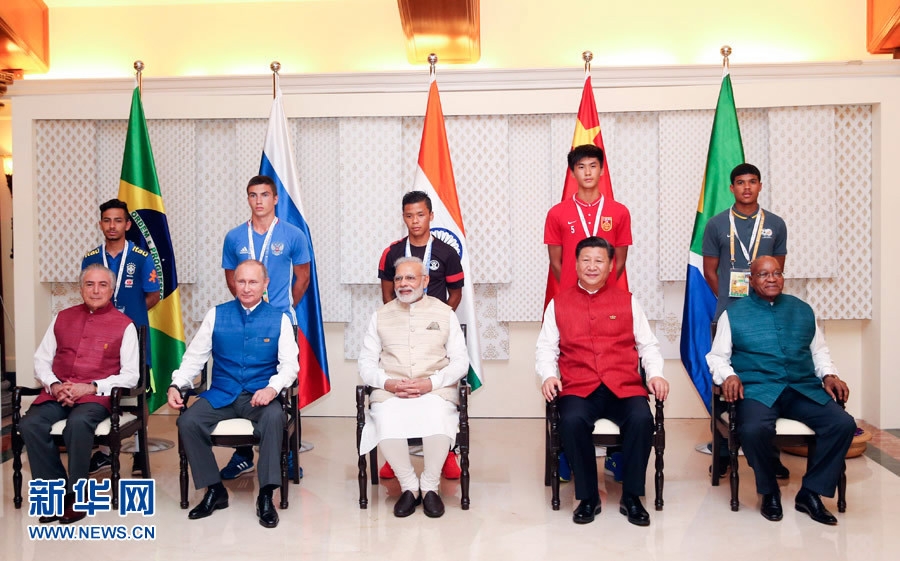
Leaders of the BRICS member states pose with captains of their respective U-17 football teams during the 8th BRICS Summit in Goa, India. /Xinhua Photo
Leaders of the BRICS member states pose with captains of their respective U-17 football teams during the 8th BRICS Summit in Goa, India. /Xinhua Photo

The Indian team at the first BRICS U-17 Football Cup. /Goal.com Photo
The Indian team at the first BRICS U-17 Football Cup. /Goal.com Photo
A BRICS U-17 Football Cup, for teenagers under the age of 17, was established in 2016 under India's BRICS chairmanship.
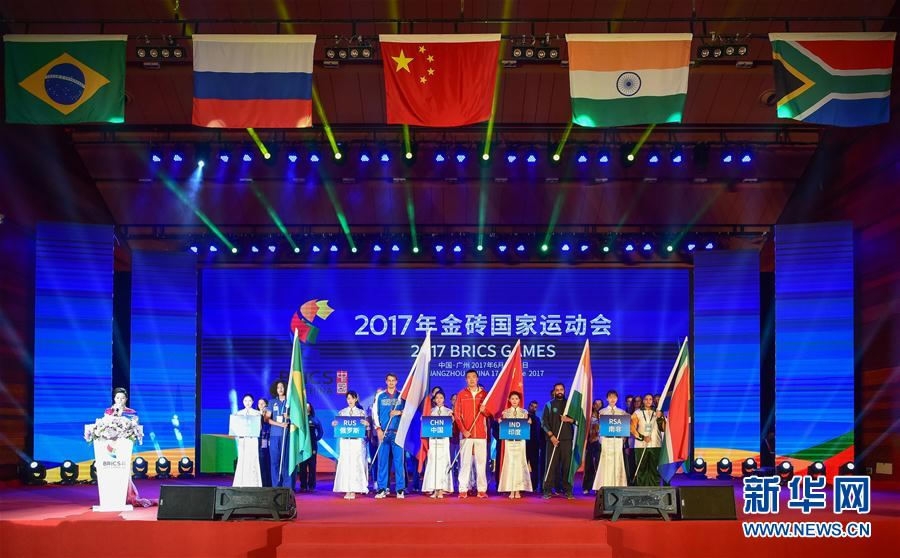
The first BRICS Games kicked off on June 17, 2017 in Guangzhou, southern China’s Guangdong Province. /Xinhua Photo
The first BRICS Games kicked off on June 17, 2017 in Guangzhou, southern China’s Guangdong Province. /Xinhua Photo
The first BRICS Games were also held in June in Guangzhou, south China. Around 300 athletes from BRICS countries took part in the five-day competition, which featured 10 events across three sports: men's basketball, women's volleyball and martial arts.
Film industry
Home to some of the biggest film industries in the world, the partners launched last year a BRICS Film Festival to bridge for filmmakers from the five nations.

Opening ceremony of the 2nd BRICS Film Festival held in Chengdu, southwestern China’s Sichuan Province from June 23 to 26 , 2017. /Chinanews Photo
Opening ceremony of the 2nd BRICS Film Festival held in Chengdu, southwestern China’s Sichuan Province from June 23 to 26 , 2017. /Chinanews Photo
At the second festival in June this year in Chengdu, in southwestern China's Sichuan Province, 33 films made by BRICS filmmakers were screened and competed for multiple film awards.
"Where Has Time Gone", the first film co-produced by all five countries, premiered at the festival and won the artistic contribution Panda Award, the festival's highest honor.

Poster for “Where Has Time Gone.”/Tencent Photo
Poster for “Where Has Time Gone.”/Tencent Photo
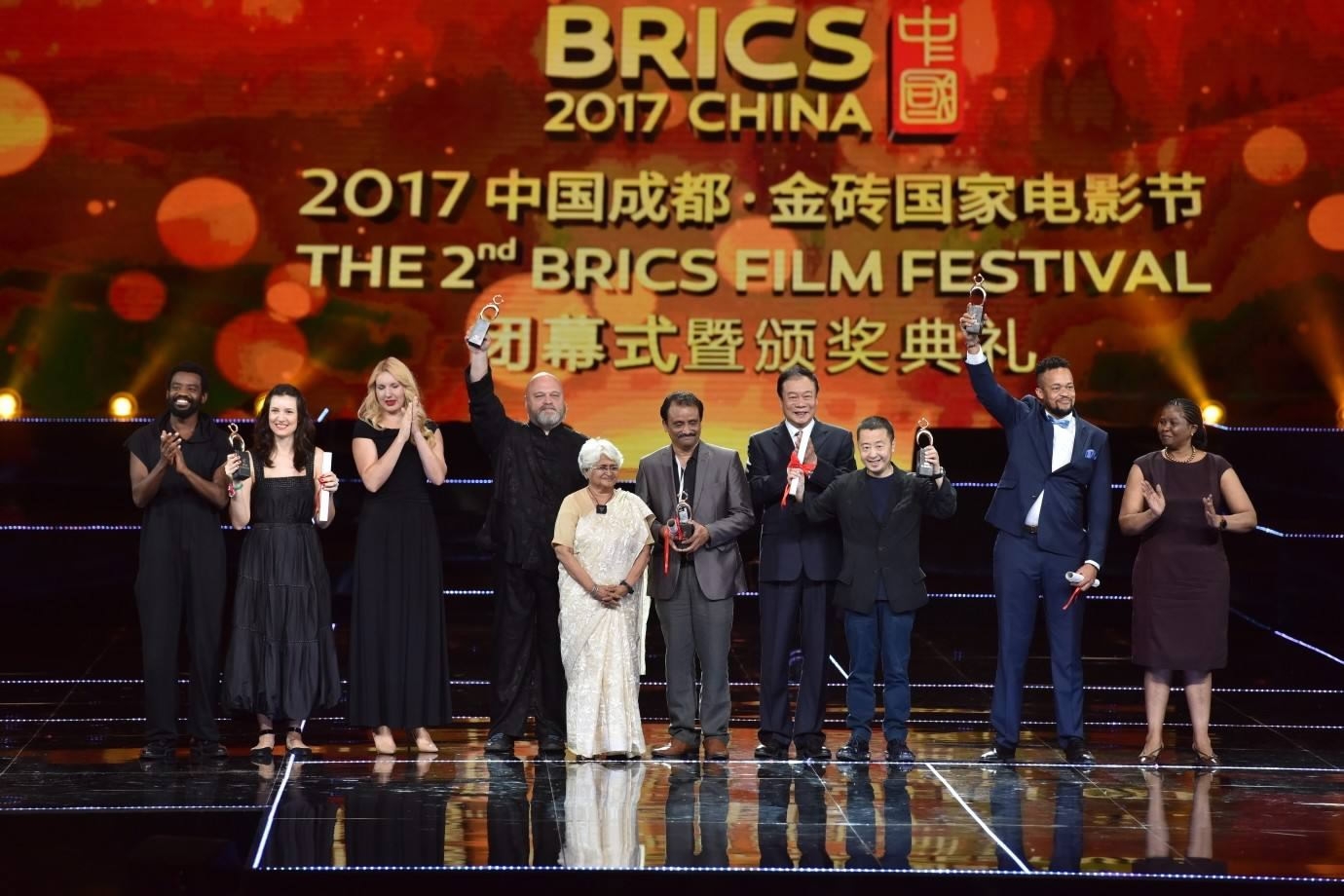
Directors of “Where Has Time Gone,”including Jia Zhangke (R3) from China, claimed the artistic contribution Panda Award for the co-production at the 2nd BRICS Film Festival. /Tencent Photo
Directors of “Where Has Time Gone,”including Jia Zhangke (R3) from China, claimed the artistic contribution Panda Award for the co-production at the 2nd BRICS Film Festival. /Tencent Photo
BRICS filmmakers also agreed at the festival to jointly make a film each year for the next five years, in a bid to better link their countries through the art of cinema, Xinhua News Agency reported.








